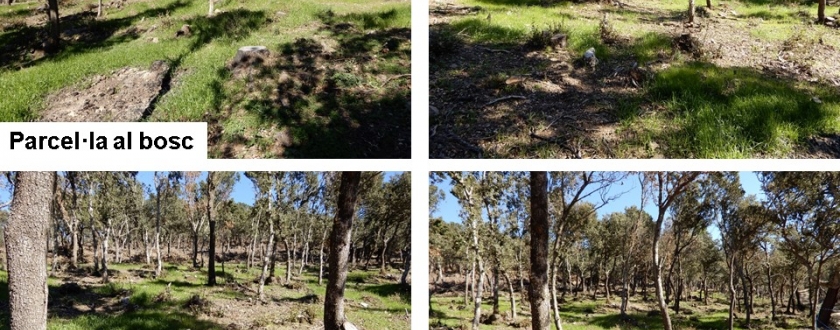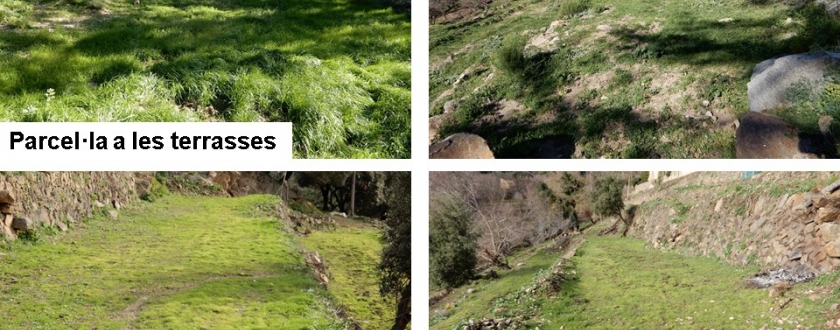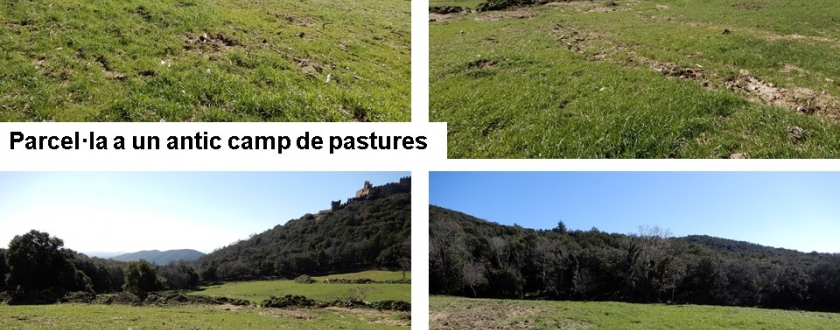Forest management for fire risk prevention in Requesens, Catalonia (Life MIDMACC)
Description of the case study
The Life MIDMACC project promotes the implementation of climate change adaptation measures in extensive cattle farming, adaptive forest management, and viticulture. It is carried out in medium-altitude mountain areas of La Rioja, Aragon, and Catalonia through the implementation and monitoring of different landscape management measures that, in turn, improve the socio-economic development of these areas and facilitate the ability to transfer results to other mountain regions in southern Europe.
In Catalonia, this pilot experience is being carried out in a holm oak grove of the Albera Natural Landscape of National Interest, in the Requesens country estate, La Jonquera (Girona). This location was chosen for various reasons: the holm oak is one of the most representative species of the Mediterranean coastal medium-altitude mountains; the area is highly vulnerable to the risk of fire, and the 2012 fire in Alt Empordà stopped short of burning it thanks to a change of wind direction; there has been barely any forest management carried out in the last 50 years, and; the ease of access, and the interest and availability of the property.
Management carried out on 1 ha of holm oak grove following the criteria of the Forest Management and Improvement Technical Plan drafting Manual (PTGMF):
» Holm oak density was reduced by opening up canopy cover split by 50%.
» The undergrowth was cut and vegetation was cleared.
» Broadcast sowing was carried out with a mix of seeds that allow for the holm oak grove area’s grass to be recovered.
In addition, an old, 3 ha field of grass was recovered by eliminating the shrubland and some trees, recovering the terraces and ploughing the surface soil, together with direct machine seeding with a mix of cat grass, perennial ryegrass, festuca perennis, white clover, and tall fescue.
» A 2 ha terrace area was recovered in a PEG within the priority area of action.
» Reducing the vulnerability of forests to climate change by reducing the risk of fire and forest water stress, and increasing carbon sequestration / wood production.
» Improving the socio-economic development of farming activity to encourage its sustainability.
The handling practice mainly consisted of selective thinning and cleaning shrubland. The treatment involved a near 60% reduction in area coverage, a 62% reduction in base area, and a 66% reduction in density (number of trees per hectare), causing a greater opening of the forest’s canopy to stimulate grass production and regrowth.
Livestock infrastructure improvements were promoted through the recovery of two former grazing fields, with an area of 2.47 and 0.97 hectares respectively.
Case study developed, implemented, and partly funded as a climate change adaptation measure.
CREAF, CIP, IPE-CSIC, IRTA, OCCC, UAB, the University of Zaragoza, the University of La Rioja
Additional Information
Stakeholder participation through the creation of 3 regional committees, one for each of the study’s territories (Catalonia, Aragon, and La Rioja), which are consulted and reported to once per year, along with the creation of a supra-regional committee with the participation of the 3 territories together.
As of now, there are no success or failure factors indicated in the bibliography
The measure does not include a quantitative cost-benefit assessment
This action falls within the framework of the LIFE Climate Change Adaptation programme
07/01/2019 - 6/30/2024 (5 years - in progress)
Reference information
PYRENEAN CLIMATE CHANGE OBSERVATORY
Avenida Nuestra Señora de la Victoria, 8
22.700 - Jaca
Huesca - España
+34 974 36 31 00
info_opcc@ctp.org







